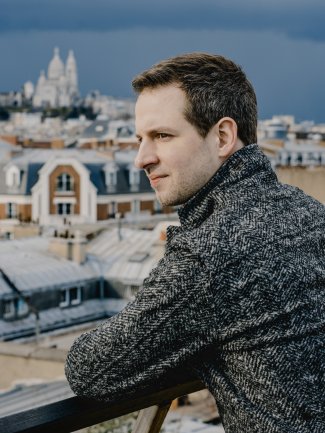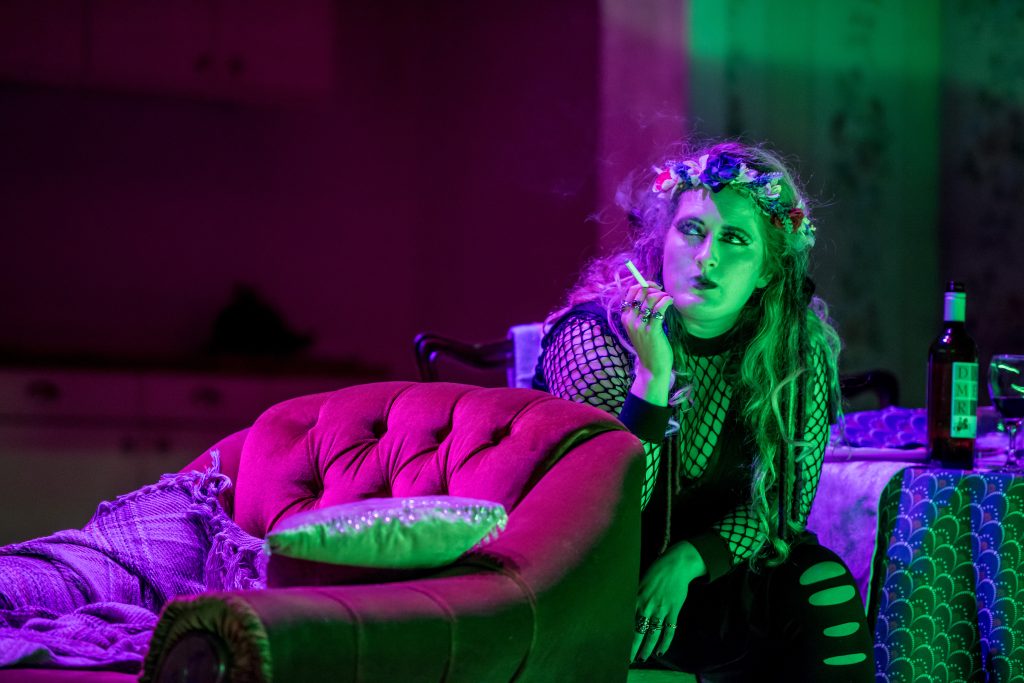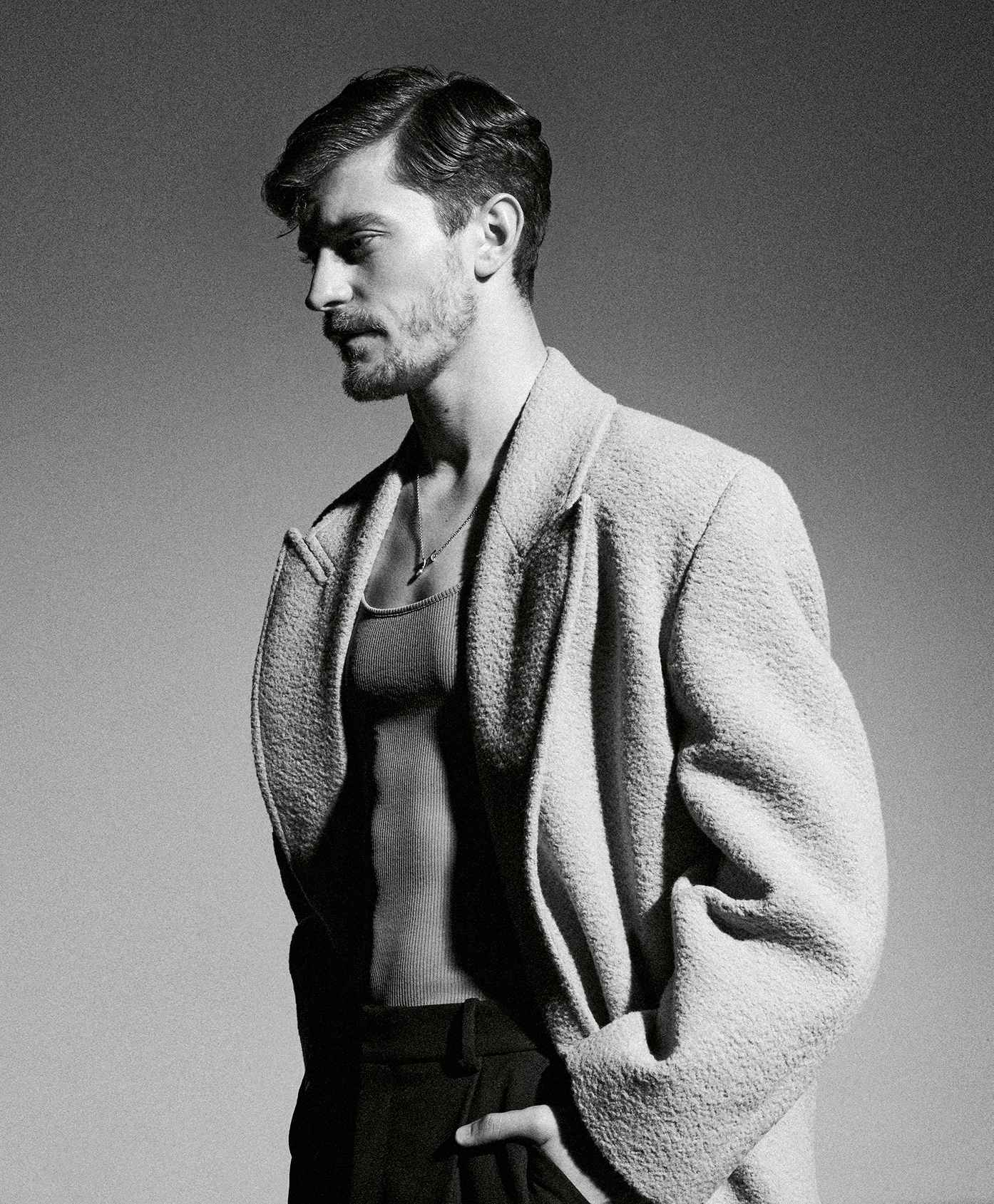|
|
Post by julesd68 on Apr 9, 2024 23:49:28 GMT
Royal Festival Hall - 6 April 2024
Järvi Conducts Bruckner
London Philharmonic Orchestra Paavo Järvi conductor Leila Josefowicz violin
Stravinsky: Violin Concerto Bruckner: Symphony 7
This concert was truly a tale of two halves but not in the way you might expect.
Let's start with the main event, the Bruckner. What a glorious first movement! From those opening cellos the music was marked by a gorgeously lyrical flow that has an unmistakably spiritual dimension, lifting our gaze beyond the present. The flute solos so beautifully taken,, throughout the work and the standout performance for my ears. The main climax of the movement was just shattering, both in sheer volume and emotional impact as shivers ran through my body. I must say that throughout the work the climaxes never let up in intensity, propelled by a brass team including a superb quartet of Wagner tubas and underscored by the heft of eight double basses, almost taking me by surprise with their potency each time.
I wasn't as happy with the Adagio. I wonder if it was taken at too relaxed a tempo as for me it came across as needing editing; these clever variations on a three note motif began to outstay their welcome which is a shame when one takes into account the poignancy of Wagner's impending death that the movement circumnavigates. It didn't have quite the same luminosity as the previous Allegro, as a result of the imperfect flow and my mounting impatience.
I also struggled with the Scherzo somewhat. I certainly appreciated the light relief after the internal focus of the Adagio but there's just too much of the opening theme that seems to sway back and forth ad infinitum. However I really enjoyed the Finale, as varied and satisfying as it is with much more in the way of thematic twists, turns and unpredictability.
One thing I cannot criticise is the unfailing commitment of the orchestra who really seemed to be playing for their lives and revelling in the colossal dynamic swings of the work that often feature in no more than a few bars of music. They certainly deserved the extremely warm reception shown at the end of the concert and it was lovely to see them turn to acknowledge the applause from those of us in the choir.
Onto the Stravinsky VC. I can't really enjoy the first two movements. Yes they are clever, technical & playful but there's nothing that I can really latch onto, whilst appreciating the dexterity of the performance and so a certain irritation set in. Now the third movement gives the soloist their first real chance to show tone and poise and I was much taken by this. The finale is an exuberant exercise in outright virtuosity and Ms Josefowicz was utterly fearless in this regard. Indeed throughout the work she was muscular, forthright and powerful, never holding back for a second. I would be most interested to hear her play again in different repertoire. A clever VC, yes, but entirely satisfying, perhaps not. 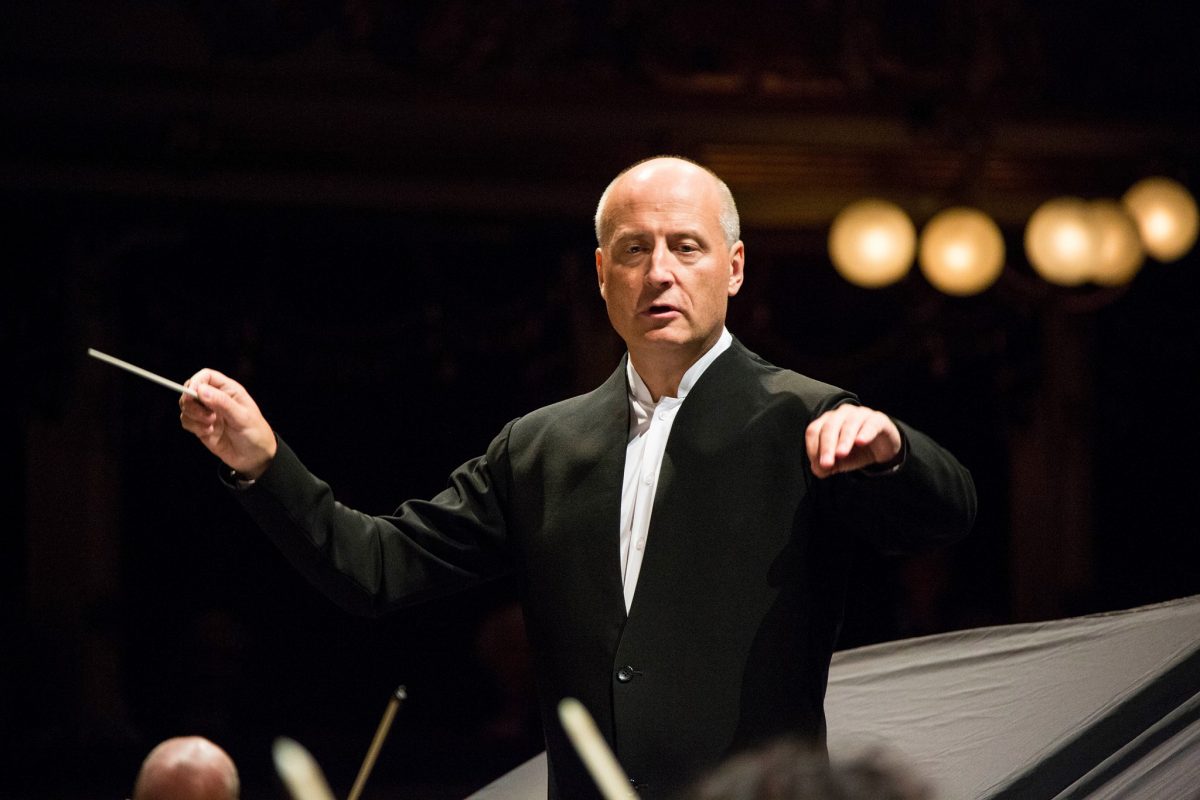
|
|
|
|
Post by MartinT on Apr 10, 2024 4:34:01 GMT
I'm glad the brass forces did the Bruckner 7 justice, it needs that. A wonderful symphony for its power and beams of light.
|
|
|
|
Post by julesd68 on Apr 12, 2024 16:34:20 GMT
Jerwood Hall LSO St Luke's - 12 April 2024
Bertrand Chamayou - piano
Erik Satie - Gymnopédie No 1 John Cage - All Sides of the Small Stone (for Erik Satie) Erik Satie - Gnossienne Nos 1 to 3 John Cage - In a Landscape Erik Satie - Rêverie de l’enfance de Pantagruel Veritables Preludes flasques (pour un chien) Gymnopédie No 2 Le Bain de Mer Gnossienne Nos 4 to 6 Gymnopédie No 3 Gnossienne No 7 John Cage - Dream
The entirely estimable Mr Bertrand Chamayou introduced today's lunchtime concert by telling us that this was the first time he had performed Satie to a wide audience. Weren't we the lucky ones - this was a dream of a concert in every way. Indeed we were encouraged to enjoy it as a "meditation" with each piece effortlessly segued into the next. I spent much of the performance with my eyes closed and mind as blank as possible, just allowing the music to gently pour over me. Fifty minutes passed as if in a dream ....
Of course the Satie is very familiar but such a pleasure to hear it performed live and in a smallish venue, sitting close to the Steinway. Not much needs to be said about the performance. Chamayou + French rep = max musical satisfaction. His touch, timing and dynamics are all truly glorious, but I knew that already. Indeed the real discovery here is the John Cage material which was written in response to Satie. I found them to be profoundly enigmatic, contemplative and intriguing; I encourage you to explore further, so here's the new album, Letter(s) to Erik Satie in which you can hear much of the concert programme itself.
|
|
|
|
Post by MartinT on Apr 12, 2024 17:49:30 GMT
You lucky bugger, all that gorgeous Satie played live.
One day...
|
|
|
|
Post by julesd68 on Apr 21, 2024 17:43:14 GMT
Jacksons Lane, London - 21 Apr 2024
The Fairy Queen - Henry Purcell
HGOAntiqua Orchestra led by Seb Gillot
HGO director Eloise Lally
This was one of the most extraordinary performances I have seen in my 55 years. The singing was eternally joyous whilst the production was endlessly inventive; I only hope I can do justice to the evening in this short review.
Jacksons Lane is a modestly sized Arts Centre just 10 minutes walk from my home in Highgate, North London. The small theatre brings great intimacy to the experience and the acoustic is surprisingly good. Imagine if you will a stage with a 12 person Baroque orchestra seated at the back led from the harpsichord. The premise of the production is set in a contemporary photographer's studio where she has an enchanted vision of classical Athens, in which she encounters a host of Ancient gods and mortals over the five acts.
The background of HGO is to give an opportunity to up and coming talent; we were handsomely rewarded in this regard. I would be quite amazed had we not heard some stars of the future here and I can only wish these fine young people all the very best in their future careers. The opera was splendid entertainment from start to finish with Purcell's ravishingly exquisite music but if I had to pick one moment it would be the musical exchange between a soprano and baroque oboist who took to the stage to move around the soprano, almost as if she were a snake charmer. The poise and tone of both voice and instrument was quite riveting.
The production was so cleverly interactive for the performers themselves in the way that they do so much more than just stand there singing. They have to navigate multiple on-stage costume changes and seamlessly rearranging the studio set as the orchestra plays the overtures. They even sometimes handle the photographic lighting! It's all handled so humorously and with such a deft and light touch ...
The choreography was remarkably assuredly handled considering the numbers involved on this small stage, with a fine sense of artistic harmony and momentum. A feast for the eyes. Humour was also a such strong feature of the evening, as was a sense of gender fluidity which was handled so naturally. There was even occasionally a dose of good old fashioned camp humour. We even somehow got a rendition of "YMCA" near the end of the opera and it just worked, with the crowd responding in great spirit. How often do you hear this tune with a baroque orchestra? But make no mistake, these are serious performers and it would not surprise me if a handful of singers make it to the stages of Glyndebourne and further afield ...
The final bow was welcomed with raucous applause and I took the short walk home with a spring in my step thanks to this profoundly rewarding experience which I will not forget. It goes without saying that I will be following HGO closely from now on.
hgo.org.uk
jacksonslane.org.uk/
|
|
|
|
Post by julesd68 on May 13, 2024 10:17:22 GMT
Royal Opera House, Covent Garden, London.
12/5/2024A joyous visit to the Royal Opera House yesterday to see the wonder that is Carmen! But here's the headline news and mark my words, Adam Smith who played Don Jose is going to be a huge, huge star. Here's the thing, both of the lead singers pulled out for some reason leaving me somewhat trepidatious about their replacements. But I needn't have worried, Adam is divinely blessed with the mercurial combination of a pure and powerful voice, with an ability to truly inhabit the role and to dig deep into the full range of emotions required. Absolutely sensational - he came, he sung, he conquered. Carmen was played by Ramona Zaharia. I thought it took a little time for her voice and acting performance to find its full range but by Act II she had summoned full alley cat mode and began to command the stage as required. Certainly no lack of sultriness or passion here. The singing from the chorus was splendid and rousing throughout, an absolute joy, as was the large troup of kids who had a really full part to play, handling all aspects of their immaculately choreographed performance with aplomb. Great job guys. A final word for the first class staging. This Carmen was given the look of a dusty and simmering 1950's Spanish outpost but actually it reminded me of Havana with all the sweltering passion, vibrant personalities and colour. Each act had just one building on display and how clever it was - they managed to use the exterior and interior of each building by having a huge rotating stage and it was timed just to perfection so that as the singers walked through the door, the interior would seamlessly turn into view. So clever! Just one highlight would be when they were singing the Toreador Song in a seedy pink neon bar! In fact the look and feel of each Act was absolutely on point. Huge respect to the super talented production design team. Naturally the technicolour music was splendid entertainment from start to finish. Thank you ROH for another truly memorable experience. Long live this glorious institution.  
|
|
|
|
Post by MartinT on May 13, 2024 10:24:31 GMT
You were lucky, Jules. Carmen absolutely needs a great lead, voice and acting, so it's good that Ramona Zaharia stepped up to it.
Probably my favourite opera.
|
|
|
|
Post by julesd68 on May 23, 2024 11:47:16 GMT
Milton Hall, London 22/5/24
Fatma Said, soprano
Joseph Middleton, pianoAls Luise die Briefe K520 - Mozart
Abendempfindung K523 - Mozart
Der Zauberer K472 - Mozart
Rastlose Liebe D 138 - Schubert
Nachtviolen D752 - Schubert
Ganymed D 544 - Schubert
Ständchen (Zögernd leise) D 920 - Schubert
Meine Rose, from 6 Gedichte von Nikolaus Lenau und Requiem Op 90 - Schumann
Frühlingsnacht, from Liederkreis Op 39 - Schumann
Liebeslied 'Widmung', von R Schumann S 566 - Liszt
7 canciones populares españolas - de Falla
Tus ojillos negros - de Falla
Del cabello más sutil - ObradorsWhat a thoroughly uplifting recital this was, full of joy and good spirits. And as it turned out, one of most pleasant surprises too ... The first thing to say is that Ms Said is a total and natural communicator - the way she inhabits a role for every song, using her innate story telling abilities to bring to life every single phrase, it's just remarkable. One can tell how much studious thought has gone into her preparation to deliver this level of recital. I am going to glide over the Mozart swiftly - it really doesn't suit her voice which I found rather thin toned and unappealing. From there however the recital went from strength to strength in Schubert and Schumann where her voice blossomed like Schumann's Meine Rose. Absolutely gorgeous and all accompanied so sensitively and generously by the most excellent Mr Middleton, a perfect partner in crime if you will ... A personal highlight was hearing the deeply moving Ständchen with voice for the first time, which I have always only known for the sublimely beautiful Liszt transcription, so loved by Khatia Buniatishvili and many others. A treat indeed. After the interval we travelled to Spain and this indeed took me by surprise in that it turned out to be my favourite part of the evening. Of course it wasn't a total surprise when you think about de Falla's more well known orchestral works which brim with colour and passion. And that's what we got here, Ms Said absolutely revelled in these songs I thought, delivering a heart felt selection where her voice seemed to almost dance on an Iberian breeze through the music, conjured by her warm lyricism ... She was aided by a more forward role for the piano which showed off Middleton's impeccable and crisp technique - I sense he really enjoyed this too! The rapt audience all had the same warm reaction as me and rose to their feet to applaud such a well considered and moving performance, truly an absolute joy to listen to. And the encore? Fred Astaire's "The Way You Look Tonight" of course! It was simply divine and left me on a miserably wet and grey evening with a sunlit glow of satisfaction ... 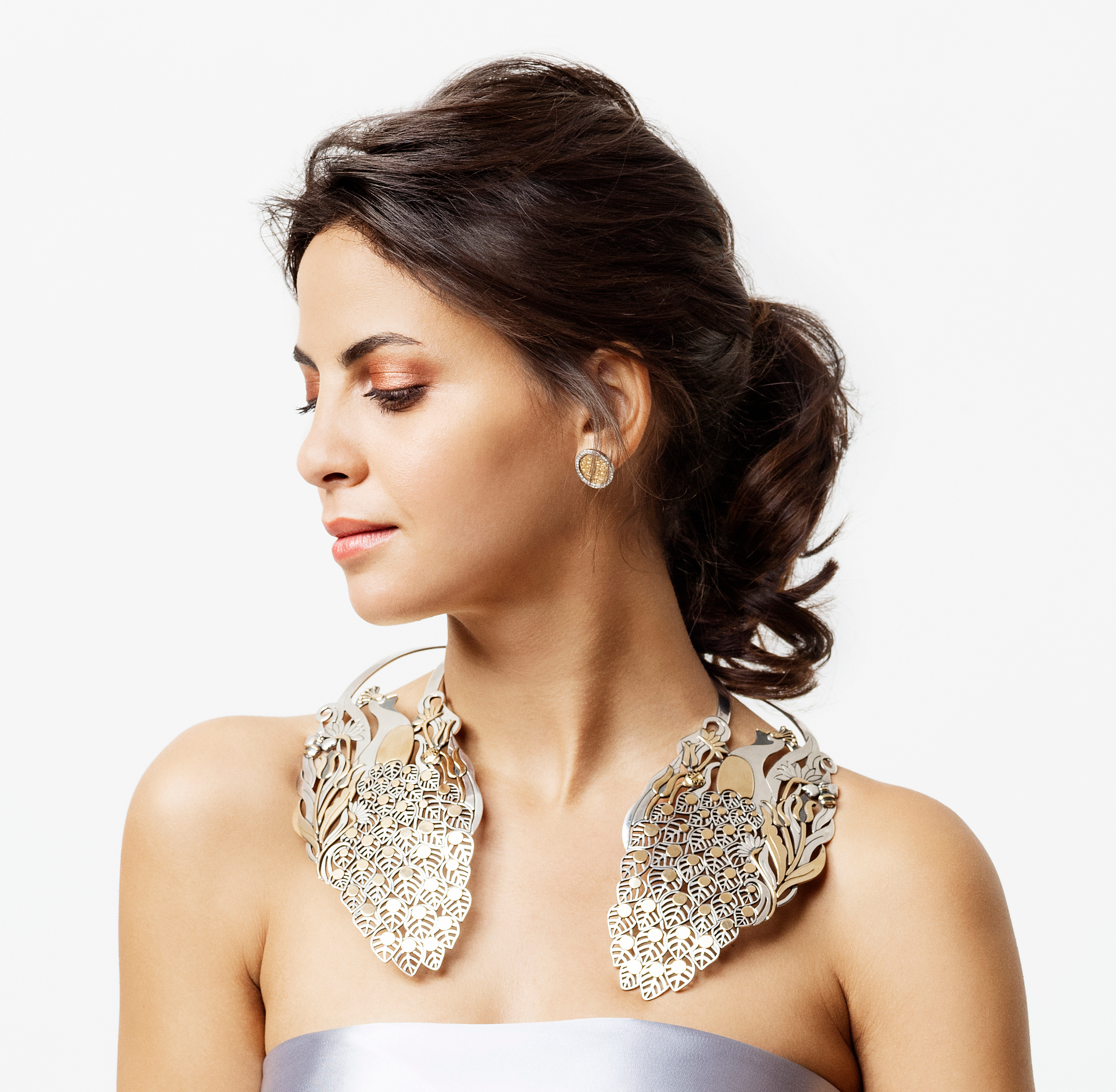
|
|
|
|
Post by MartinT on May 24, 2024 7:08:39 GMT
Lucky you, Jules, and I regret missing it.
I would have loved to hear the Spanish section, too.
|
|
|
|
Post by julesd68 on Jun 10, 2024 11:00:38 GMT
Royal Festival Hall 7 June 2024
Yuja Wang, piano
Barber: Piano Sonata in E flat minor, Op.26
Shostakovich: Prelude and Fugue in A minor, Op.87 No.2; Prelude in G sharp minor, Op.34 No.12; Prelude in C sharp minor, Op.34 No.10; Prelude and Fugue in F sharp minor, Op.87 No.8; Prelude in D minor, Op.34 No.24; Prelude in D, Op.34 No.5; Prelude in B flat minor, Op.34 No.16; Prelude and Fugue in D flat, Op.87 No.15
Chopin: Ballade No.1 in G minor, Op.23 Ballade No.2 in F, Op.38 Ballade No.3 in A flat, Op.47 Ballade No.4 in F minor, Op.52
Yuja the Destroyer ...
... of reputations, of traditions, of preconceptions et al, she is a superstar in every way. The concert was a sellout many weeks before the programme was announced and there were even extra seats on the stage, something I haven't seen previously at the RFH.
Now here's a strange thing - the concert was billed as being two hours long with an interval, but even my rudimentary maths told me there was only an hour or so of music in the programme. When I quizzed a friendly usher, she told me it might be due to the number of encores that Yuja has been known to play. Hmm - an interesting way of fleshing out the programme!
Our soloist took to the stage with her customary back breaking bow - warning, don't try that at home kids unless you want a quick trip to the physio ... Straight into the Barber, that would showcase Yuja's military precision and command of razor sharp rhythm. The first movement plunges us headlong into a heady mid century melange of emotions, alternating between urgent and demanding spiky rhythms and wistful, romantic urges ... The second movement is a brief onslaught of quick fire semiquavers, brimming with restless energy, a dance of the fireflies if you will. And then, the gorgeous third that held me rapt with its nocturnal mysteries laced with hushed intrigue and immensely potent outbursts of dark anguish. The final movement takes us back to the restless rhythms of the second but with some subtly optimistic flourishes. An ebb and flow of intensity yet marked by a thrust that allows Yuja to display her unquestionable authority in a pulsating and thrilling race for the finish line. An immensely satisfying and coherent musical statement that was very well received in the hall. Onto the Shosta Preludes, these brief vignettes never outstayed their welcome and require a constant forward momentum. Listening to some other recordings of these it's obvious how much more alive and alert these can be in Yuja's hands! And then an interval after just thirty minutes of music, really? This did feel strange but I had time to wonder how the Chopin would fare - in years gone by I might have feared how the romantic expression would be given full value with Yuja.
She eased into the opening Ballade with a sense of the pastoral and understated but clear yearnings, the expression of which was deliberately hampered by the use of restricted dynamics. And then ... BOOM! It's as if the wrath of god and the hounds of hell are simultaneously unleashed on us poor unsuspecting souls, a perfect thunderstorm and maelstrom of giddy emotions. This is Yuja in full effect. For the remainder of the Chopin I would often close my eyes due to an irritating duo of restless young children right in my eyeline. Thankfully in the hands of Ms Wang I was instantly transported to the salons of 19th century Paris, observing whispered confidences and furtive gazes mixed with unfettered passions; the heavy cloaks of convention removed. A most persuasive and intelligent reading.
So where was the rest of the concert? Well that nice usher was entirely correct, onto the encores, all NINE of them would you believe; not something that I have witnessed previously. Hoist the mainsail and mark a course for Iberia - with more colour than a Dulux convention, the first two pieces were pure joy and exuberance. Our host then treated us to a ravishing selection of breathtakingly virtuoso workouts in every conceivable style. Most unexpected to me in this context was Philip Glass's Etude no 6 which simmered with energy. After around two hours of almost deadly laser focus, Yuja was still utterly on point, with zero signs of fatigue and ready to destroy.
Two hours of music.
Nine encores. One Yuja Wang. 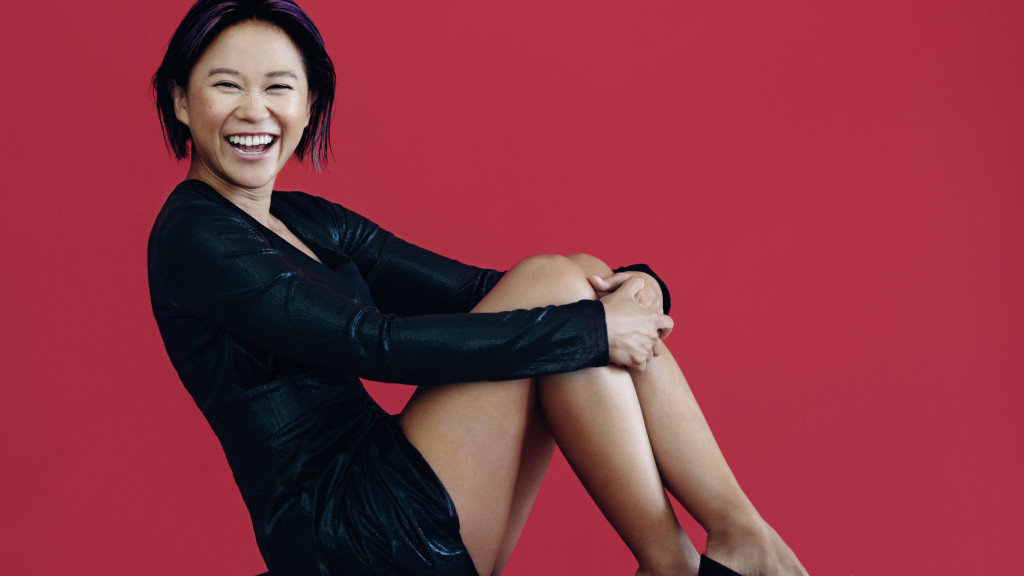
|
|
|
|
Post by MartinT on Jun 10, 2024 11:35:32 GMT
Fantastic - everything I have heard about her and watched on YouTube. Superstar, indeed.
|
|
|
|
Post by Slinger on Jun 10, 2024 15:53:29 GMT
Yes, but did you enjoy it, Jules?  Excellent review, by the way. |
|
|
|
Post by julesd68 on Jun 10, 2024 17:46:44 GMT
Thank you Paul.
I would have enjoyed it more with an expensive seat in the stalls!
|
|
|
|
Post by MartinT on Jun 10, 2024 17:57:50 GMT
Here's that wonderful Glass.
|
|
|
|
Post by julesd68 on Jul 8, 2024 17:15:53 GMT
Barbican, London. June 23 2024
London Symphony Orchestra, Gianandrea Noseda (conductor)
Shostakovich Symphony 3, ‘The First of May’ op 20 Carmina Burana - Carl Orff
Christina Poulitsi, soprano Sunnyboy Diadla, tenor Elliot Madore, baritone London Symphony Chorus Tiffin Boys’ Choir
“The Mark of a Man"
Surely you remember that iconic 1970's advert for Old Spice? Well such was the mark it left on me, for some unknown reason I have never bothered to listen in full to its iconic soundtrack, Carmina Burana. This concert would put that right for me after a modest half century or so …
Carmina actually closed the concert but I'm starting with it here and what an impact that opening theme had - a tidal wave of energy indeed! I found it incredibly potent and affecting, whilst revelling in all the extra lucidity and detail that a live performance brought to the soundscape. An instant audio upgrade from our finest 1970's Radio Rentals television ... For the first time I could genuinely appreciate the deep layers of orchestration that go into producing this timeless theme, made sense of by some equally captivating surtitles. The sound was monolithic in the best possible way, with the orchestra playing on 11 and the choir singing for their lives. Of course what I have never heard is what happens when the music moves on from the theme we all know and love; that's where I'm not fully converted. A clever contrast with the chaos of Shostakovich 3, at their very best Carmina's crystal clear themes have a technicolour, larger than life quality. At worst my attention wanders as the music meanders. This is often due to the composer's stubborn insistence on repeating his themes not once, twice or three times, but ad infinitum. On first listening there is a far more satisfying work lurking here, though every now and then my attention was rewarded with moments of genuine delight. And of course I didn't begrudge the composer in bringing back the main theme for a monumental crowd pleasing finale.
In terms of the performance Noseda shackled his deep forces immaculately with the orchestra bursting every sinew. The main choir impressed me throughout with their clarity, musicality and commitment whilst the boys’ choir also played their part with great élan. As regards the soloists, well what a discovery the tenor Sunnyboy Diadla is for me - one of those performers who simply demands your undivided attention with his quite unique vocal character and presence. I can only hope to encounter his prodigious talents again as his role is sadly by far the smallest here. The soprano, Christina Poulitsi, took a little while to fully find her range and phrasing but find it she did and there was one divinely inspired moment when she sang "Sweetest one ... I give myself to you completely" with a poignancy and golden nectar that almost stopped time itself ... I simply have to mention principal timpanist, the absolutely outstanding Nigel Thomas, who as you might imagine had an extremely busy evening with these two works and displayed the perfect backbone of outright power and military precision. Much to enjoy then but one live Carmina performance will most likely suffice for me.
Next, The Mark of a Man Part 2 if you will. Exactly what mark did Shostakovich leave on Symphony 3 and what about two others we must consider, Comrades Lenin and Stalin. Unfortunately the composer's fingerprints are slightly smudged and it's difficult to be 100% sure what his true motivation was in this work but I will make my case purely based on this performance. In terms of a little background, The Russian Association of Proletarian Musicians were looking for music that could deliver a simple and direct political message. Somewhat contradicting this was Shostakovich himself -
“It would be interesting to write a symphony where not a single theme would be repeated."
Somewhat at odds with a single clear expression! Written in less than a month it almost comes across as a stream of musical consciousness. His use of intricate counterpoint means that a lot is left to our imagination but I felt able to follow a narrative which exuberantly captures the energy of revolutionary Russia. I hear this cataclysmic cycle of change in the music, an ever changing parade of massed voices, the industrial machine fed by a never ending source of manpower, in the factories and the fields alike. The pulsating nature of this struggle and chaos is captured in the constant ebb and flow, the non-linearity of the music. In terms of duality much has been made of this work as a satire, bursting with dark humour, sarcastically mocking the text. I really struggled to hear this interpretation in the music, especially when you consider when the work was composed. Shostakovich was only 23 and surely would not have been wanting to openly antagonise the authorities at this early point in his career when he had already enjoyed some success and Stalin had started to insidiously turn the screw. But eventually the work was indeed banned by the censors who were not enamoured with its “formalism and dry experimentalism”. Likewise the work has never really taken off with the public either and is rarely performed.
Before I turn to the performance itself, one last thought on the background - it’s very difficult to look at this work through the lens of Shostakovich’s time, our view is clouded and tainted by all we know about Stalin and what happened afterwards. So whilst the joy of the finale struggles to feel anything more than a forced smile, maybe its intentions were joyous at the time. I don't think it's a puzzle that can be solved - some of the pieces are missing, purposefully or not. And the fact that it doesn’t appear to be a fully formed statement is unsurprising given the composer was not yet musically or politically fully formed. For this we need to look to the later and greater symphonies.
By its very nature it’s not an easy symphony to listen to but Noseda managed to highlight the constant sense of forward movement and propulsion of the era with his entirely dynamic probing of the work, never ceasing in his energies. This brilliantly captured the depiction of a chaotic parade, amplified by the frenzied and disparate voices of industry and revolutionary struggle. But of course this dynamic transformation was born out of violent revolution and what came across very clearly in its darkest moments was also the haunting voices of the dead - are these of those who died in the revolution or are they associated with the murder squads that came after? Another puzzle to consider. As a whole, the sound was mightily taut, fed by one of the largest string contingents I have seen on a stage. With the help of the superb London Symphony Chorus, the finale that features Kirsanov’s poem was a most potent cocktail, laden with ardent fervour and revolutionary colour. The Barbican masses were entirely won over. 
|
|
|
|
Post by MartinT on Jul 8, 2024 19:12:21 GMT
I do love Carmina Burana but confess I haven't played it in a long time.
I'll remedy that soon.
|
|
|
|
Post by julesd68 on Jul 15, 2024 18:11:42 GMT
Buxton International Festival
10 Jul 2024
St John's Church
Angela Hewitt - Piano
Bach - Partita No. 6 in E minor, BWV 830
Beethoven - Piano Sonata No. 14 in C-sharp minor, Op. 27 No. 2 (Moonlight)
Scarlatti - Three keyboard sonatas: Sonata in D major (Kk430), Sonata in E major (Kk380) and Sonata in C major (Kk159).
Brahms - Variations and Fugue on a Theme by Handel, Op. 24This is the first of three reviews for my visit to the estimable Buxton International Festival. I'll cut to the chase and say that this recital didn't grip me in the way I hoped it would. It started extremely well with one major caveat. The Bach was beautifully understated and moving, entirely beguiling with notes seemingly suspended in time and space, causing me to reflect in turn - at times it feels like a conversation Bach is having with God and at others it's as if he's conversing with himself during the introspective counterpoint. However I really struggled with the tone of the Bechstein employed here and certainly missed Hewitt's usual Fazioli or any decent Steinway. It was just too strident and forward for my taste; somewhat restricted in soundstage too. In the Bach if that purity of tone is missing it is always going to be a distraction and at times I just couldn't lose myself in the music as a result. The Beethoven was incredibly powerful but uneven to my ears. The first movement was serene and elegant, with restrained dynamics. Then suddenly it was as if a fuse had been lit as the tempo upped - a somewhat relentless barrage of highly exaggerated dynamics driven by the pulsating left hand rhythms. Technically it was impressive but I felt a slight emotional connection missing here and the reading didn't quite gel and speak to me as I had hoped. I can't say much about the Scarlatti and Brahms. I usually much prefer Scarlatti on a harpsichord and there was nothing here that changed this. I can admire the skill in the composition of the Brahms variations but found them too academic and dry as such; again I was missing an emotional connection to the music . 
|
|
|
|
Post by julesd68 on Jul 17, 2024 18:28:25 GMT
Buxton International Festival
11 Jul 2024
St John's Church
Samuel Ng - Viola da Gamba
Kristiina Watt -Theorbo
M Marais - Pièces de Viole, Livre IV – Suite No. 1 in D minor
F Couperin - Pièces de Viole – Suite No. 1 in E minor
M Marais - Pièces de Viole, Livre IV – Suite No. 2 in D majorI absolutely adore these wonderful old instruments, they demand such deep artistry and so was very much looking forward to this performance. We got off to a slightly slow start with the opening Marais. Compared to the rest of the concert I wasn't hearing an innate musical communication between the soloists and their instruments didn't sing to me with the radiance I hoped for. So I was delighted when immediately entranced by the plaintive prelude of the Couperin - it was sublimely contemplative and soul searching; thereafter the rest of the Suites were thoroughly engaging and inspiring, played with great verve and a fine depth of tone from the viola da gamba. The closing Marais was marked by studious virtuosity and an infectious energy; an effortless communication with each other and a rapt audience. Indeed their Marais came off much better than recorded versions I sampled thereafter! Another level of spirituality, I was only sad that the music had to end. 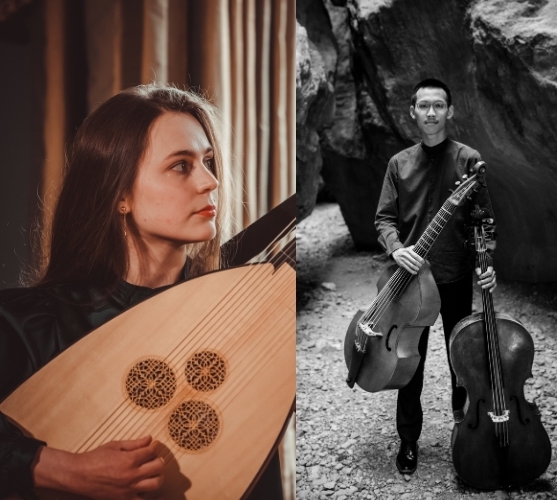
|
|
|
|
Post by julesd68 on Jul 21, 2024 17:50:11 GMT
Buxton Opera House - Buxton International Festival
11 July 2024
Il trionfo del tempo e del disinganno - GF Handel
Anna Dennis - Bellezza (Beauty) Hilary Cronin - Piacere (Pleasure) Hilary Summers - Disinganno (Disillusion) Jorge Navarro Colorado - Tempo (Time)
A brief review as I'm still a novice really when it comes to opera appreciation.
Here's the low down - the characters of Time and Disillusionment both do their best work to guide Beauty away from her rampant superficial indulgences, into the healing light of abstinence and piety ... Most admirable and considerate! It's actually a really engaging plot and found myself totally buying into the story due to the quality of the production with such prodigious vocal and acting skills of the four singers.
When I learnt that the performance was going to be set in a middle class 1950's home I was a little trepidatious about how this was going to work but such was the consummate touch and attention to detail of Jacopo Spirei (Director) and Anna Bonomelli (Designer) it turned out I needn't have worried. And with the themes explored here being so timeless, universal and human, I actually didn't question it for a moment on the day.
The star of the show was the sublime music itself, so radiantly enriched by the deep commitment of the singers and musicians. I cannot get over the performance of Anna Dennis, whose beguiling voice and utterly convincing acting skills had me transfixed. Her gorgeous duet with Hilary Cronin had me almost in tears, such were the exalted heights it reached. All four singers were perfectly matched in their efforts to bring out the deep humanity of the opera, raising questions for us all about what truly matters in life. And on this note I reflected in a way like no other after a performance ...
I must also mention two other scenes of great impact. 'Time' dragging a coffin across the stage had all the qualities of Bergman's The Seventh Seal. On a more cheerful note I'll end with the most joyous moment of this triumphant production, when the cast start some kind of crazed dancing like they're clubbing to Handel. Just glorious!
|
|
|
|
Post by julesd68 on Jul 29, 2024 18:32:55 GMT
23 July 2024
Prom 7: Late Night Italian with Jakub Józef Orliński
Jakub Józef Orliński - counter-tenor Il Pomo d’Oro - orchestra
Claudio Monteverdi - L’incoronazione di Poppea - ‘E pur io torno qui’ Claudio Monteverdi - Voglio di vita uscir Biagio Marini - Per ogni sorte distrumento musicale, Op. 22 – Passacaglia Giulio Caccini - Le nuove musiche - ‘Amarilli, mia bella’ Girolamo Frescobaldi - Arie musicali, Book I - ‘Cosi mi disprezzate’ Johann Kaspar Kerll - Sonata for Two Violins in F Barbara Strozzi - Cantate, ariette e duetti, Op. 2 – L'amante consolato Francesco Cavalli - Pompeo Magno - ‘Incomprensibil nume’ Carlo Pallavicino - Demetrio – Sinfonia Giovanni Cesare Netti La Filli - ‘Misero core’; ‘Sì, sì, sì scoglia sì’; ‘Dolcissime catene’ Antonio Sartorio - Antonino e Pompeiano - ‘La certezza di tua fede’ Giovanni Cesare Netti - L’Adamiro ‘Quanto più la donna invecchia’; ‘Son vecchia, patienza’ Adam Jarzebski - Canzoni e concerti – Tamburetta Sebastiano Moratelli - La Faretra smarrita - ‘Lungi dai nostri cor’
Jakub Józef Orliński - remember the name .
I have never been to such an extraordinary concert and never heard the like of his voice. Obviously the greatest countertenor of his generation and I now believe one of the greatest vocalists in any genre you care to name alive today. He mournfully took to stage in a black cloak, the lights dimmed as the orchestra began to play, also all dressed in black, like thieves in the night. Then he opens his mouth - the voice, ah that voice! Listening to him on recordings is wonderful enough but live? I only hope I can do this wonderful talent justice ... His voice is rich like Venetian fur, opulent and seductive yet with an otherworldly, plaintive and longing tone that moves me to tears. This was a complete performance, with every word expressed as part of a drama, a character which he so artfully inhibits. Obviously he has studied the libretto so deeply that he understands how to portray every nuance, a glance or subtle shift of the body. This was so much more than a recital, it was more akin to being semi-staged.
The first section of the evening was marked by heavy drama and deep emotions sent swirling into the lofty ether of the Albert Hall. His character exhausted and emotionally spent, he lies down on the stage at one point to rest as the orchestra plays. He then picks up a light and starts to roam the stage as if it were a maze of Italian backstreets, his face fraught with intrigue. He then walks off stage. Seemingly out of nowhere he appears in an entrance half way back in the hall and starts singing again whilst most people were gazing at the orchestra. Extraordinary! He then slowly and wistfully winds his weary way back to the stage. And soon enough after, he starts a dance that I could only describe as a form of contemporary dance with a few quite staggering leaps that take their cue from street dance. The audience just couldn't believe their eyes!
There then followed a breathtaking baroque guitar solo that used 'tapping' techniques the like of which we know from rock guitarists like Eddie Van Halen. It was absolutely riveting in its virtuosity. There were more surprises to come as Orliński then devised another character - an old woman, shuffling onto the stage and slightly hunchback. It worked, beautifully.
The evening was the perfect blend of historically informed performance through a contemporary lens. Now this took us up to the advertised hour of music but in fact with the many encores we only left the hall at five to midnight. The occasion wasn't just profoundly beautiful, it was such joy and fun. His personality shone through when he addressed the audience, a wonderful mix of exuberance, charm and perhaps a certain naivety. He also comes across as sincere and genuine as he tells us how excited he was to be there for his first Prom. He even had some crowd interaction going where we had to sing back to him some short Baroque vocalisation - I was near faultless of course ... 
I cannot finish the review without mentioning Il Pomo D'Oro. I have never heard a more beguiling Baroque tone delivered with huge panache and deep artistry. I adored the Baroque harp and cornett, which I cannot remember hearing before. Every member of the orchestra a master of their craft, I was also enamored by their obviously warm and relaxed connection with each other. I completely forgot we were in the challenging acoustic of the RAH and it has never sounded better to my ears.
We only just got the last tube home and had to contend with an infestation of mice on the platform at Kings Cross but was it worth it? Yes, a million times over.
Jakub Józef Orliński - an extraordinary talent and force of Baroque nature.
|
|



